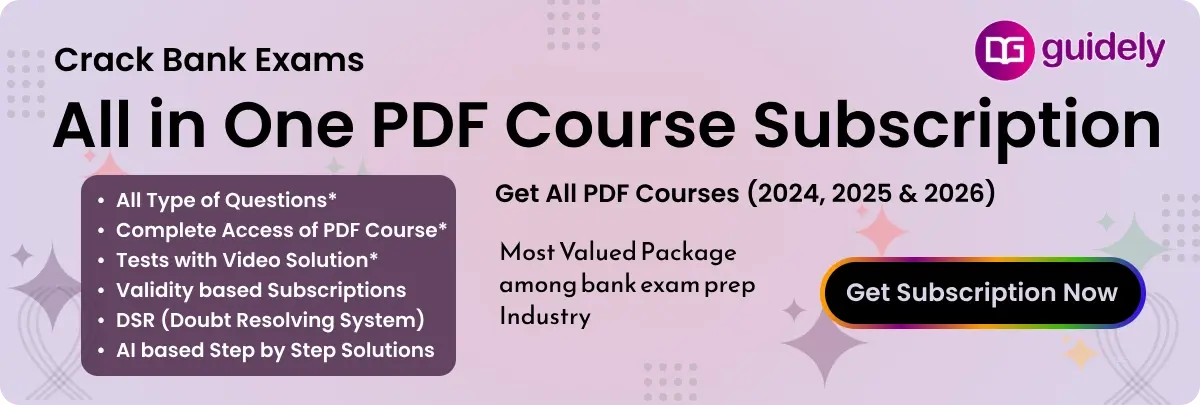Compliance risk refers to the potential for legal or regulatory penalties, significant financial loss, or reputational damage that a bank may face due to its failure to adhere to laws, regulations, rules, relevant self-regulatory standards, and codes of conduct related to its banking operations. Conversely, an effective process would recognise compliance risks in each business line, product, and process, and develop strategies to mitigate those risks. The processes and requirements should be thoroughly documented, accompanied by a clear list of do’s and don’ts. Instances of non-compliance should be turned into case studies and shared with staff to promote learning and reinforce the desired attitudes. Banks should avoid viewing compliance solely as a cost and instead recognise that maintaining proper conduct protects the bank from potential reputational damage and penalties. This, in turn, creates hidden earnings that many banks fail to quantify and, therefore, overlook.
Precis Writing For SBI PO Mains 2025: Check Format, Examples, Meaning, Samples For Probationary Officer Exam
Sep 03 2025
Precis writing is an important part of most banking and insurance mains exams. The overall mains cut-off marks are calculated by combining the scores from the precis writing section with those from the objective paper. For aspirants aiming to succeed in their exams, a clear understanding of the precis writing format is necessary. The purpose of the Precis writing is to test the language proficiency and comprehension skills of the candidate, along with his/her creativity, intellectual knowledge, and understanding of the given passage/ context. Analysing the precis writing examples will assist you in familiarising yourself with the format and improving your scoring potential. Precis writing cultivates the ability to read passages attentively and with focus. It also contributes to the enhancement of your ability to identify key and non-key components of passages, thereby demanding your close attention to the reading process. Candidates need to remember that they must use a computer keyboard to type the precis throughout the exam. To aid the aspirants, this page contains extensive details about precis writing, such as precis writing format, precise writing examples, and precise writing samples on this page. Make the best use of this and practice regularly to ensure your success.
Attempt Descriptive Writing Mock Test For SBI PO Mains
Precis Writing Meaning
Precis Writing Meaning: A precis is a concise summary or shortened version of a longer text or document, designed to highlight the main ideas, key points, and essential information from the original passage. The aim is to simplify the content to its most important aspects by eliminating unnecessary details and repetition. A précis is usually one-third the length of the original text and is crafted in a manner that is both clear and concise. Mastering the precise writing format through the precise writing examples offered here will significantly help in your preparation for the upcoming SBI PO and other banking exams.
Precis Writing Format For SBI PO Mains Exam 2025
A precis serves as a summary or condensed version of a longer text or document. Here you can check the precis writing format for your reference. A candidate will be provided with a story, a passage or a paragraph to write a precis on. They have to:
-
Read the story, passage, or paragraph carefully and create mental notes/outlines.
-
Create a precis using simple and precise language.
-
Proofread and edit the precis.
-
Avoid flowery or superfluous words.
-
You have to make sure that your sentences are well-structured and easy to read.
-
Remain focused on the point.
-
Do not put unnecessary details or ramble on irrelevant topics.
-
Use active rather than passive voice where possible.
Note: A precis is usually required to be one-third of the size of the passage, it is being written on. It is essential to adhere strictly to the specified word limit as directed in the question.
Check Descriptive Writing Format For SBI PO Mains Exam 2025
Precis Writing Sample For SBI PO Mains 2025 Exam
Candidates can check the precis writing sample given below to understand the precis writing format and more details.
Write a Precis of the following paragraph in your own words
The banking sector in India is undergoing rapid change. Technological advancements have greatly transformed the industry, altering both financial processes and the operations of financial institutions. This shift has presented major challenges for both banks and regulators. One key challenge is 'compliance,' which is crucial for the long-term success of any banking and financial system.
Compliance refers to the adherence to laws, rules, regulations, and various codes of conduct, including those that are voluntary. While many of these requirements come from external sources, it is equally important to follow the organisation's internal rules, policies, and procedures, and to act in line with ethical practices. A strong compliance culture should also promote adherence to fair practice codes, manage conflicts of interest, and ensure fair treatment of customers, all with the ultimate goal of providing efficient customer service. Therefore, compliance should extend beyond legal requirements to encompass broader standards of integrity and ethical behaviour.
For banks, showcasing a strong compliance culture is crucial to preserving their reputation and gaining the trust of customers, investors, and regulators. Such a culture is vital for banks to prevent misconduct and the erosion of trust. A strong compliance culture offers several benefits to banks, which include: i) low organisational and individual risk; ii) low reputational risk; iii) less hesitance and more confidence among employees while performing their jobs; iv) helps attract and retain talent and ensure employee engagement. v) improved transparency, which enables better decisions; vi) enhanced relationship with regulators and other stakeholders, and vii) enhanced valuation among investors. Therefore, adopting a compliance culture is essential for achieving customer satisfaction, which ultimately results in higher returns on equity.
A strong compliance culture will, therefore, contribute to building organisations that are strong, resilient, disciplined and enjoy the benefits of sustained growth and customer confidence.
Precise Writing:
Title: Compliance in Banking
The banking sector in India is experiencing rapid transformation driven by technological advancements, presenting major challenges, especially in terms of compliance. Compliance involves following laws, rules, regulations, and internal codes of conduct, while also upholding ethical practices. A strong compliance culture not only meets legal obligations but also ensures fairness in customer treatment, conflict management, and effective service delivery. Demonstrating a strong compliance culture is essential for safeguarding a bank's reputation and building trust with customers, investors, and regulators. The benefits include lower risk, increased employee confidence, greater transparency, and stronger relationships with stakeholders. Compliance risk, such as legal sanctions or reputational damage, highlights the importance of managing risks effectively. Banks should see compliance not merely as an expense but as a protection against penalties and damage to their reputation. A strong compliance culture fosters sustainable growth, resilience, and lasting customer trust.
Precis Writing Examples
Precis are generally used in academic, journalistic, and professional contexts to provide readers with a quick understanding of a complex or lengthy piece of writing. Here you can check some of the precis writing examples that will help your fo your preparation.
Write a Precis of the following paragraph in your own words
Ethical practices are a crucial element in building a strong business and culture, alongside factors like other factors such as salary, fulfilling work, good management, and more. Research has shown that workplace culture and accountability are crucial factors in determining a business's success, emphasising the importance of fostering a strong business foundation.
This means that for the current generation entering the workforce, strong ethics are essential to a company's long-term success and growth.
Good ethics guide people to make decisions that benefit the company's long-term success and growth, thereby contributing to building a solid business. In fact, it can be argued that poor ethics have contributed to the demise of many companies. A classic example of this is Enron. Enron had a toxic culture that played a major role in the collapse of that company. In essence, the absence of good ethics from the company sowed the seeds for the company’s demise.
A company with a strong culture that emphasises good ethics is more likely to attract and retain employees who make decisions that support the long-term growth and success of the organisation.
This highlights the importance of companies to establish an ethics program that promotes strong ethical practices across the business and fosters the right behaviours among their employees. Workplace misconduct is always an issue for companies, and one of the most effective ways to reduce it is through the promotion of strong ethics. When companies create environments that foster and encourage good ethics, the likelihood of misconduct decreases. Additionally, employees are more likely to report any misconduct they witness.
It is clear that good ethics significantly influence the decision-making processes of staff within an organisation, which in turn impacts the ability to build a successful business. Decisions are made every day in a business that shapes the future of a company. Ensure that your employees are making decisions that will positively shape the company's future, rather than have a negative impact. (as was the case with Enron). By focusing on cultivating a workforce that embraces good ethics, companies can reduce misconduct, strengthen their team, and enhance overall alignment with company goals. In short, good ethics are essential for building a successful business.
Precise Writing:
Topic: How Good Ethics Contribute to Building a Successful Business.
Good ethics are essential for building a successful business, alongside factors such as salary, management, and workplace culture. Ethical practices are vital in decision-making, driving long-term growth and success for businesses. Poor ethics, as seen in the case of Enron, can result in a company's collapse due to a toxic culture and flawed decision-making. In contrast, companies with a strong ethical culture can attract and retain employees who make decisions that support long-term growth. Creating an ethics program promotes positive behaviour, reduces workplace misconduct, and cultivates a more engaged workforce. In the end, good ethics are crucial for making positive decisions, minimising misconduct, and creating a resilient, successful business that prospers over the long term.
FAQs
Q. What is Precis Writing?
A precis is a concise summary or shortened version of a longer text or document, designed to highlight the main ideas, key points, and essential information from the original passage.
Q. What is the length of a precis writing?
A precis writing length is usually required to be one-third of the size of the passage, it is being written on. It is essential to adhere strictly to the specified word limit as directed in the question.
Q. Where can I get the precis writing format with examples?
You can get the precis writing format with examples in this article.
General Awareness Smart Analysis (Smart Quiz 2.0)
- Get Weekly 4 set Test
- Each Set consist of 50 Questions
- Compare your progress with Test 1 & 2 & Test 3 & 4
- Deep Analysis in topic wise questions
Super Plan
- All Banking PDF Course 2026, 2025, 2024
- All Banking Video Course
- All Banking Mock Test Series
- All Banking Bundle PDF Courses
- All Banking Ebooks
- All Banking Interview Courses Not Included
Premium PDF Course
- Bundle PDF Course 2025
- Premium PDF Course 2024
- Prime PDF Course 2023






